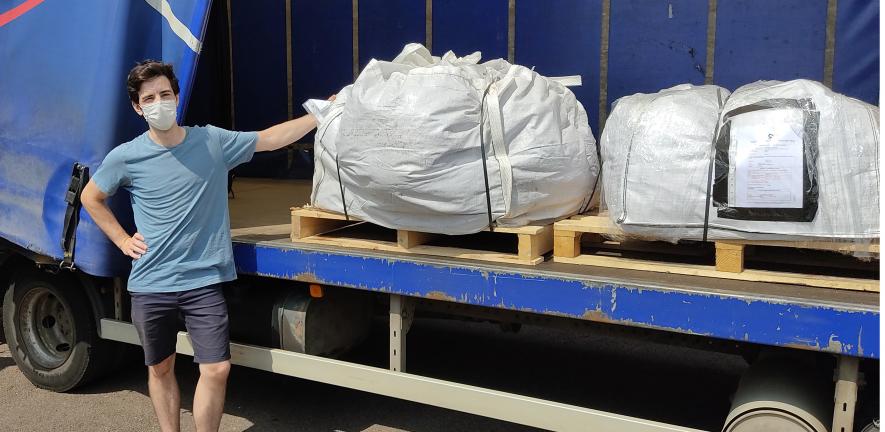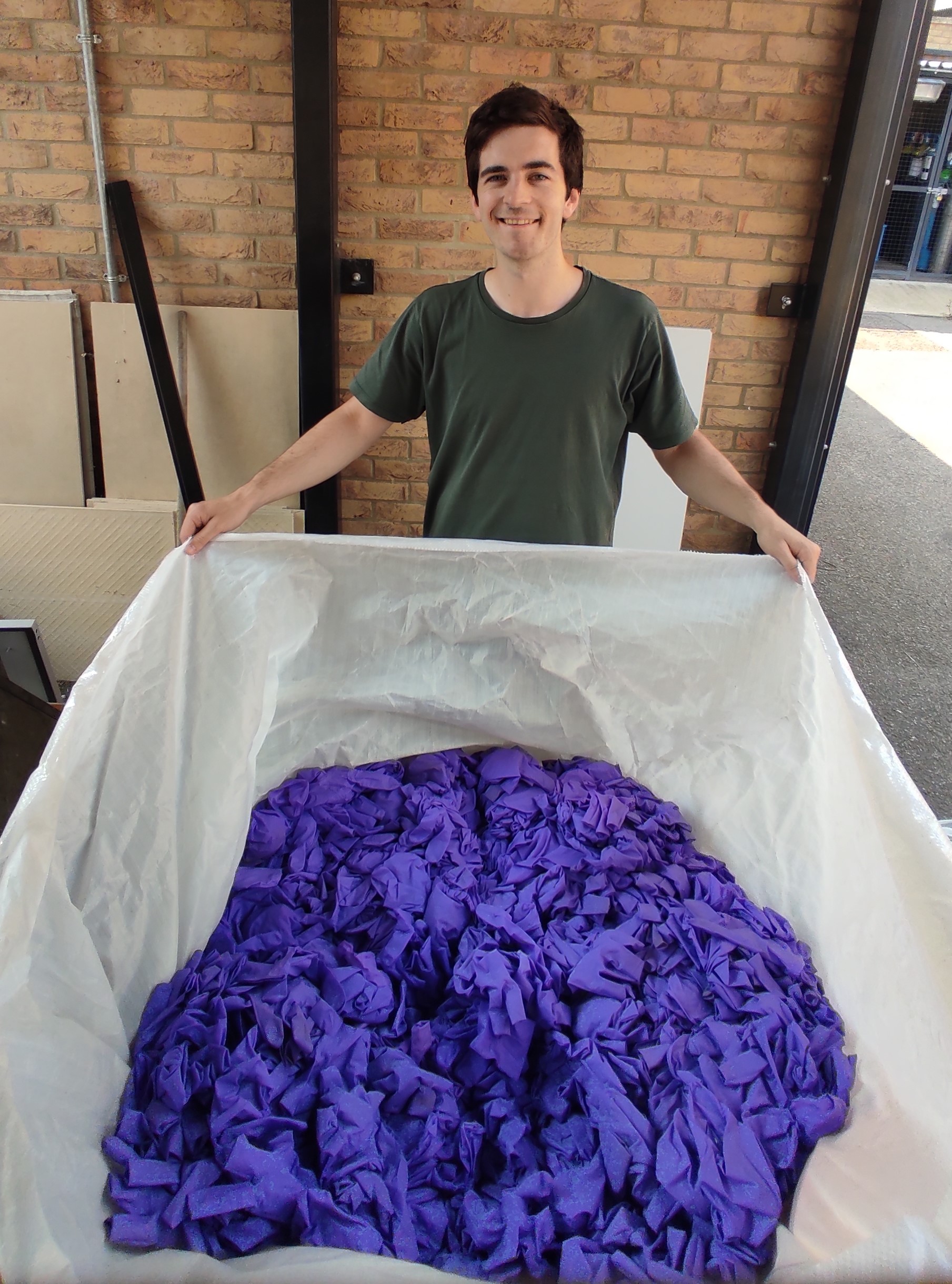
Submitted by Jessica Haskell on Wed, 2021-07-28 10:21
On a recent hot Thursday afternoon, a truck left the University’s West Cambridge site laden with two large but unremarkable pallet bags. Unremarkable they may have seemed, but they carried thousands upon thousands of purple gloves and marked the start of a new recycling trial here at the University.
The picture above shows the first load of nitrile gloves being collected to go to a recycling plant following a successful trial in three University departments. Since early 2020, the Departments of Physics, Chemical Engineering & Biotechnology, and Materials Science and Metallurgy have been working with their staff to carefully sort and collect nitrile gloves from laboratories and clean rooms across their buildings. The project dates back to 2019, when Paolo Andrich, a researcher in the Physics department, took part in Engage For Change, a 12-week programme for students at the University of Cambridge who want to learn to make sustainability change. Paolo saw the number of nitrile gloves used in his day-to-day research and was keen to find a solution, so as part of his Engage for Change project he approached the Sustainability Team and set up meetings with one of the University’s main suppliers of nitrile gloves, KimTech.
Nitrile gloves - a handy item with a big footprintEvery year, the University spends hundreds of thousands of pounds on nitrile gloves, as an important way for staff to protect themselves from hazards, or their experiments from contamination. Nearly 4 million are used every year – that’s a pair for everyone in Latvia, or stretched end-to-end, they would reach from Cambridge to Munich! These items add around 23 tonnes to the University’s waste outputs every year, and the Single Out campaign launched earlier this year found nitrile gloves to be the ninth most prevalent single-use item, by weight, across the whole University, and sixth most common lab-related item. |
While some of the gloves University staff use are contaminated by hazardous substances and chemicals, and so must be disposed of safely via a specialist contractor, some gloves are not contaminated and could be turned into new products. For this reason, the Sustainability Team has worked closely with the Safety Office, departmental safety officers as well as environmentally-keen staff, students and green teams to put in place the right guidance and procedures, roll out new collection infrastructure and share communications materials. The first result of these efforts is the two large loads of gloves shown above. They will be turned into plastic pellets and then molded into new durable products like plant pots and garden furniture, with the recycling costs funded by KimTech, the glove supplier.
Graham Kimbell (pictured) was one of those involved in the scheme, at the Department of Materials Science and Metallurgy (MSM).
“In MSM we quite literally burn through a huge amount of disposable gloves. The recycling scheme started in MSM over a year ago with me simply writing labels on some old cardboard boxes and nagging my lab members to put their used gloves in them! Since then, we've managed to get essentially the whole department involved in the scheme. We hope by recycling we can reduce the demand for new plastic production and reduce the amount of CO2 and other pollutants produced by our waste incineration."
Peter Lumb, Environmental Coordinator in the University’s Sustainability Team, said:
“The glove recycling project, while relatively small in the context of the University’s overall waste outputs, is a really useful example project. A big element of the University’s Waste & Recycling Strategy is about finding ways to deal with the huge volumes of single-use items from labs, which make up around 70% of our non-recyclable waste. While there are barriers to tackling this kind of waste, with the support, expertise and enthusiasm of staff from around the University we’ve shown what can be achieved!”
If your department is interested in taking part in the nitrile glove recycling scheme, get in touch with sustainability@admin.cam.ac.uk. For more information on recycling at the University, including what you can do to improve your department or building's performance, visit our Recycling and Waste pages.

